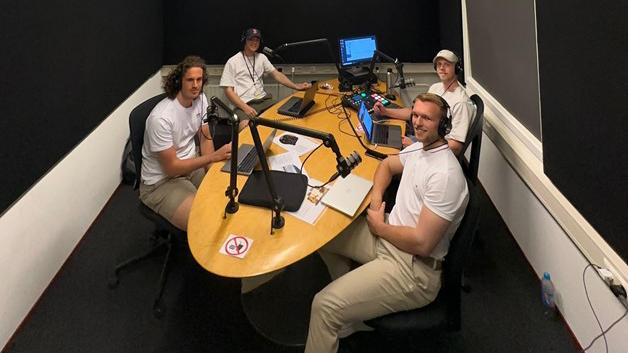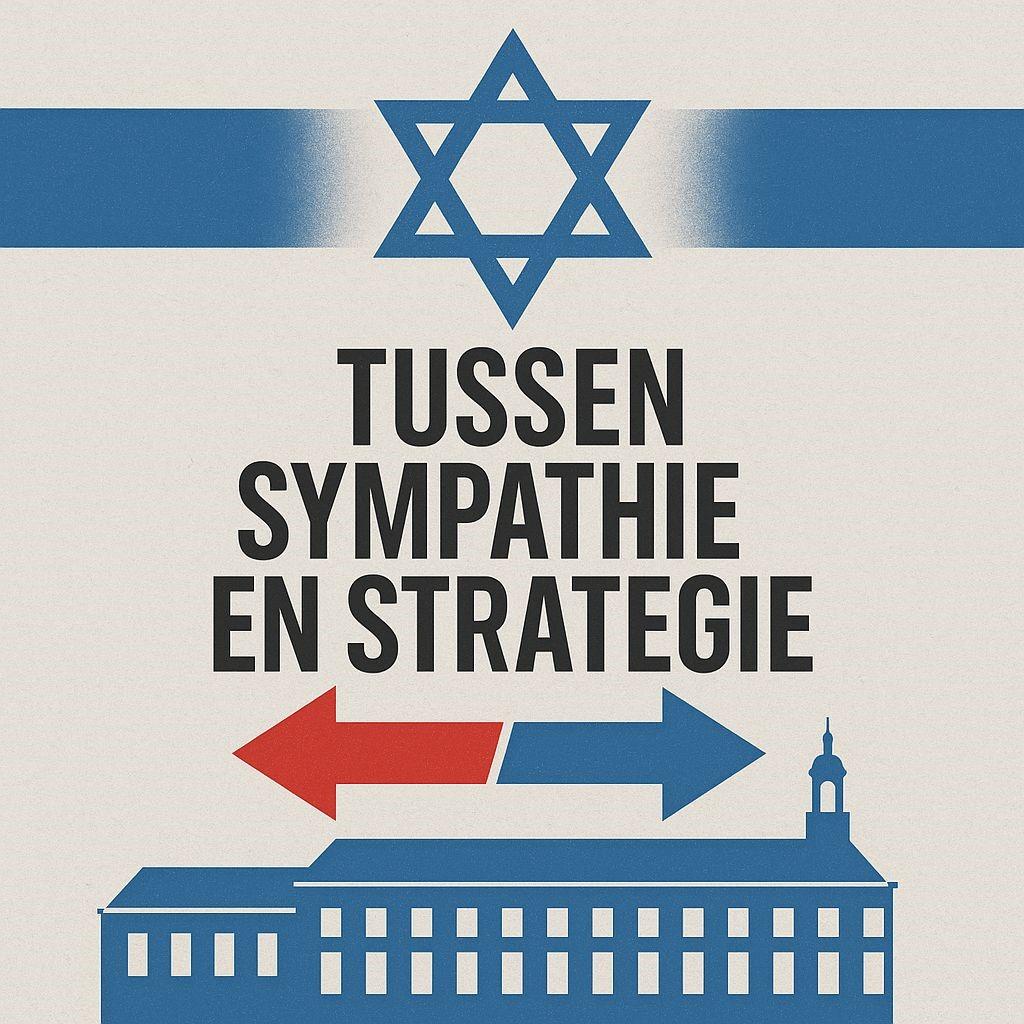Four history students create podcast
How Dutch sympathy for Israel shifted from left to right

You have to be lucky. In the first episode of their podcast series, former PvdA (socialist party, ed.) leader Job Cohen says he is confident that “the Israel issue” will never become a stumbling block in the new cooperation between the PvdA and GroenLinks (GreenLeft, ed.).
In the same month, the four creators of “Between Sympathy and Strategy” see those words proven false. To Cohen's visible dismay, a motion is passed during a joint congress of the two parties calling on the Dutch government to stop supplying defence equipment for the Israeli defence shield. Prominent veterans within the PvdA subsequently decided to resign their membership.
There could hardly be a better illustration of how views on Israel have shifted on the left of the political spectrum in the Netherlands. “You also see that the memory of the Holocaust is no longer the all-determining factor for new generations,” says Lennart van Aggelen.
Together with three fellow students from the Utrecht Master's programme in History of Politics & Society, Matthijs Maat, Stan Meerdink and Jibbe Slofstra, Lennart created the Dutch language podcast as a study assignment. In the series, they explain how Israel was initially the darling of left-wing politicians, but was increasingly embraced by the right.
‘We wanted to explore a historical debate that is still politically relevant. And this topic is more urgent than ever because of the escalating conflict between Israel and Palestine.’

Not clear in people's minds
Lennart says he has noticed that many people don't have a clear view on how the Netherlands' relationship with Israel has developed. Lennart gives a broad overview of what will be discussed in the four episodes of the podcast, starting in 1945.
According to him, it is often thought that after the Holocaust, the Netherlands must have had a lot of sympathy for the Jewish people and their call for their own country. But that is not the case.
After World War II, the Dutch government formally supported the UN's two-state solution, but initially did not want to recognise Israel. It considered it more important to regain possession of the Dutch East Indies. ‘Recognising a new state and thereby angering Muslims would play into the hands of the independence movement in the Dutch East Indies. That had to be prevented.’
After Indonesia's declaration of independence, the Dutch position changed and broad support for Israel emerged. Left-wing parties saw the country as a social democratic experiment, with the strong Labour Party and the kibbutzim as symbols of solidarity. ‘Other parties in the Netherlands liked to see Israel as part of the greater West, a reliable ally in the Cold War. They took a more pragmatic position.’
The fate of the Palestinians
With the rise of populist parties in the Netherlands, relations shifted from the 1990s onwards, the students explain in the podcast series. These parties made support for Israel part of their identity. Lennart: “For these parties, that country represents values that have been lost in the Netherlands. This idea is often linked to views that can be described as anti-Muslim and anti-multiculturalism.”
Under pressure from the success of the populist parties, the VVD (liberal party, ed.) is also increasingly taking pro-Israeli positions. At the same time, according to Lennart, there was a counter-movement on the left. There, people began to take an increasing interest in the fate of the Palestinians. Lennart: ‘That's pretty much the background to the radical polarisation we find ourselves in today.’
Reflection on your own culture
The episodes of the podcast focus on different sides of the issue: the right-wing perspective, the left-wing perspective, that of the Christian/religious parties, and the international perspective. The four worked on one episode each. Lennart: “We try to show that support for Israel is not a static given, but historically shaped and politically constructed.”
The four believe that understanding this history is also important for domestic politics, says Lennart: “It's not just a matter of foreign policy. It's a reflection on your own culture. What does Israel mean to us, why is it important to us?”
The four had never made a podcast before. The fact that they did so now is thanks to the structure of their master's programme, which allows for a “free assignment” that students can fill in themselves. "We wanted to create something that would be interesting to a wide audience, to people who are interested but don't know everything yet. And in this way, contribute to the public debate.”
This meant that they had to do more than just conduct research and write an academic article, which they did, incidentally. “In the end, we decided to make a podcast. It turns out that you understand what you have researched even better when you have to explain it in an accessible way.”
They recorded the podcast in Dutch because they wanted to examine the Netherlands’ history with the issue specifically. The audience having an understanding of Dutch politics and history is expected. “Our goal was to look closer into the history of the topic, but more from a Dutch point of view.”
You can listen to the podcast on Spotify: https://open.spotify.com/show/3hCfvnYJhcOK9C1hAwBESZ?si=3afd68cd67444117